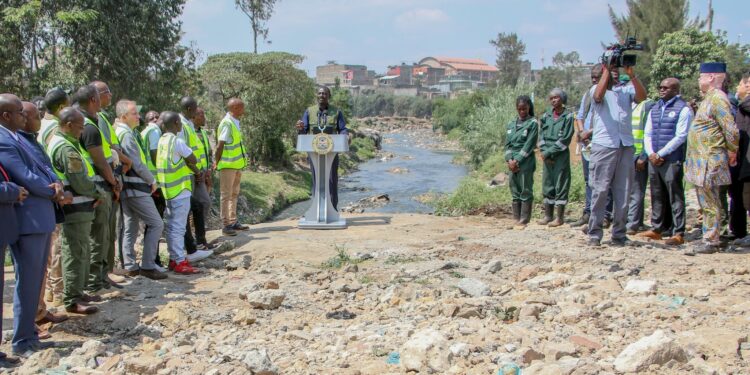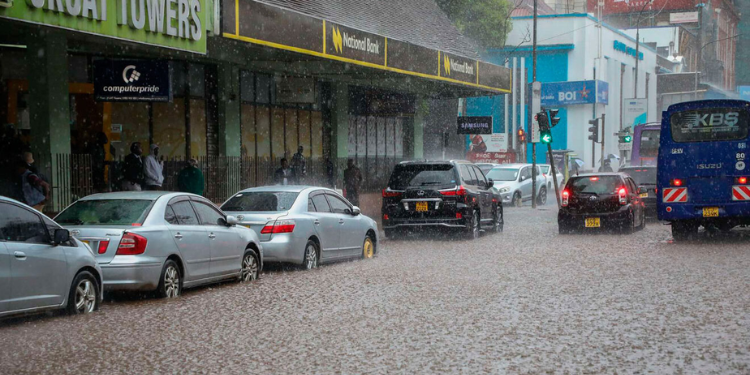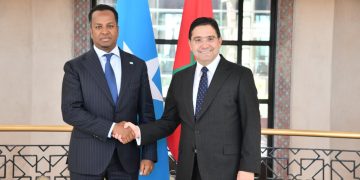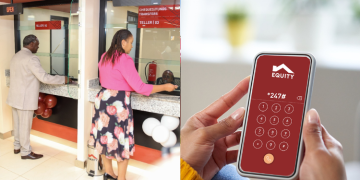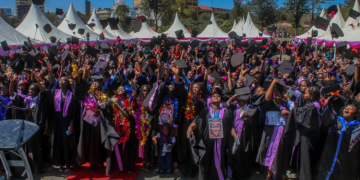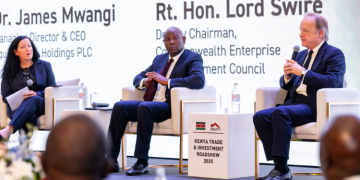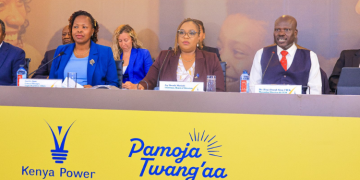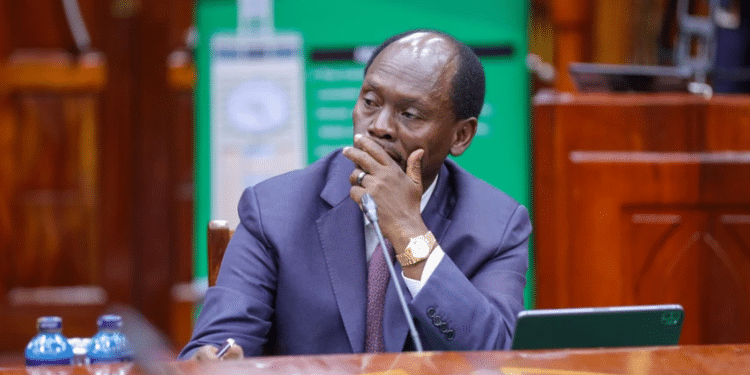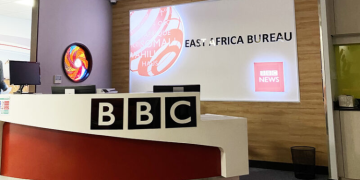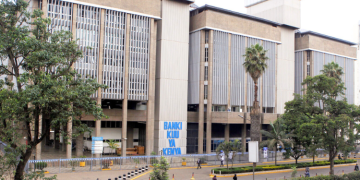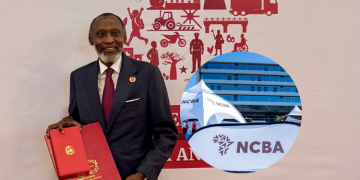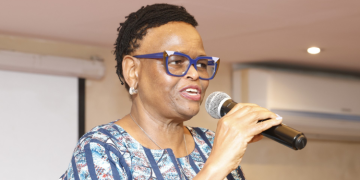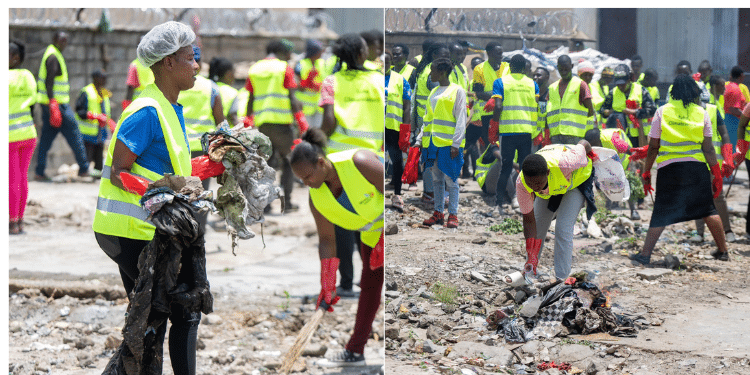The Nairobi River Regeneration Project has gained momentum as the county government and the Nairobi Rivers Commission intensify efforts to clean and restore the city’s major waterways.
Addressing the media on October 10, the Nairobi County Executive Committee Member for Green Nairobi, Maureen Njeri, said the project aims to rehabilitate the Nairobi, Mathare, and Ngong rivers in collaboration with the Nairobi Rivers Commission.
“This is a project we have been waiting for as a city for many years,” Njeri said during an inspection tour of ongoing works in Kamkunji.
“Our role is to provide technical support, ensure access to work sites, and offer supervision to guarantee quality standards are met.”
Part of the project will also see the redevelopment of Kamkunji grounds into a modern public park with green spaces, recreation areas, and playgrounds.
Njeri revealed that the initiative includes a major upgrade of the city’s sewer infrastructure — the first in decades — aimed at preventing the discharge of untreated waste into rivers.
“For many years, our sewer system has been dilapidated and inadequate. The upgrade will improve wastewater management and significantly reduce pollution,” she said.
She noted that unregulated settlements and encroachment on riparian areas have been the biggest contributors to river pollution.
The county is now working with local communities and resident associations to reclaim and protect riverbanks.
“We want to change the narrative and create safe, green, and accessible spaces along the river corridors,” Njeri said.
“Our goal is to make Nairobi a city where people can live and work in a clean, healthy environment.”
The Nairobi River Regeneration Project is being implemented under the Nairobi Rivers Commission through a multi-agency approach that combines engineering, environmental, and community-driven solutions.
Also Read: Unpacking Nairobi River Regeneration Project and How it Will Tackle Waste & Flooding
Nairobi Regeneration Project Targets Restoration of Polluted Rivers
Once the heartbeat of the city, Nairobi’s rivers have long suffered from pollution and neglect.
However, the regeneration drive is reshaping not just the rivers, but how Nairobi grows around them.
Drains are being expanded, sewer lines upgraded, and waste systems modernized to stop raw effluent from flowing into the rivers.
Through integrated planning, housing, and environmental reforms, the initiative is turning the river corridor into a model of sustainable development, thus advancing environmental restoration, social justice, and resilience for a cleaner, healthier Nairobi.
This transformation is as much about people as it is about infrastructure — connecting environmental restoration with better housing, cleaner air, and renewed pride in the city’s natural assets.
Also Read: What Designating the Nairobi River Valley as a Special Planning Area Means
Transforming Communities
Along the riverbanks, the change begins with communities that have refused to give up on their neighborhoods.
Groups like Komb Green Solutions in Korogocho and the Kilimani Project Foundation are taking the lead — cleaning waterways, planting trees, and turning forgotten patches of land into vibrant community spaces.
For many, regeneration means more than cleaning up waste — it’s about reclaiming dignity and opportunity.
The youth and local residents are creating jobs through recycling and urban farming, while also reducing pollution and improving public health.
By involving citizens directly in planning, mapping, and decision-making, the city is redefining urban renewal as a shared effort.
Forums, digital platforms, and neighborhood committees give residents a voice in shaping the places they call home.
By placing communities at the center, the NRRP ensures that river regeneration also drives social equity, environmental resilience, and shared ownership of Nairobi’s transformation.
Mechanisms such as town halls, community mapping, surveys, and digital platforms keep local voices central to planning and monitoring, ensuring the project’s outcomes remain people-led and sustainable.
Follow our WhatsApp Channel and X Account for real-time news updates.
